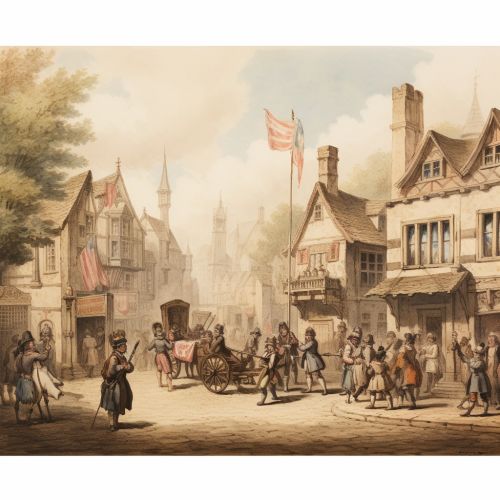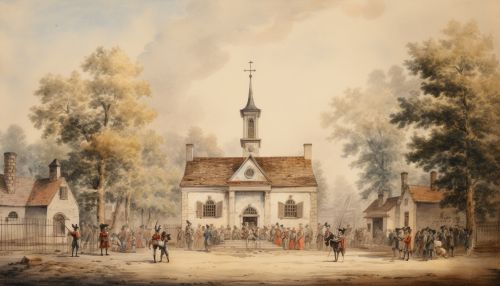Townshend Acts
Introduction
The Townshend Acts were a series of British acts of Parliament passed during 1767 and 1768 relating to the British colonies in America. They are named after Charles Townshend, the Chancellor of the Exchequer, who proposed the program. Historically, these acts are often referenced together, but they were passed as separate pieces of legislation.
Background
The purpose of the Townshend Acts was to assert the power of the British Parliament over the American colonies. They were designed to collect revenue from the colonists in America by putting customs duties on imports of glass, lead, paints, paper, and tea. The acts took their name from Charles Townshend, the Chancellor of the Exchequer, who was responsible for fiscal and economic matters. The Townshend Acts followed the Stamp Act of 1765, which was met with strong opposition in the colonies and was repealed in 1766.
The Acts
The Townshend Acts include the Revenue Act of 1767, the Indemnity Act, the Commissioners of Customs Act, the Vice Admiralty Court Act, and the New York Restraining Act.
The Revenue Act of 1767
The Revenue Act of 1767 imposed a tax on imports of glass, lead, paint, paper, and tea. The act was met with resistance in the colonies and led to a widespread boycott of British goods.
The Indemnity Act
The Indemnity Act of 1767 sought to undercut the price of tea from the East India Company that was smuggled into the colonies from Holland, thereby promoting the sale of company tea on which the Townshend duties were paid.
The Commissioners of Customs Act
The Commissioners of Customs Act, passed in 1767, created a new Customs Board for the North American colonies, which was stationed in Boston. The act aimed to more effectively enforce British trade laws, which had been widely violated.
The Vice Admiralty Court Act
The Vice Admiralty Court Act, also passed in 1768, was intended to make the British navy more effective in enforcing trade regulations. It removed decisions about smuggling from local courts to a royally-appointed judge.
The New York Restraining Act
The New York Restraining Act, passed in 1767, was a response to the failure of the New York provincial assembly to comply with the Quartering Act of 1765. The act suspended the assembly's legislative powers.
Reactions and Protests
The Townshend Acts led to a significant backlash in the colonies, including protests and boycotts. The acts were seen as an abuse of power by the British government, and many colonists believed they violated their rights as English subjects. The slogan "No taxation without representation" became a rallying cry against the acts.
Repeal and Aftermath
In 1770, the British government partially repealed the Townshend Acts, removing all duties except for the tax on tea. However, the damage had already been done, and the acts had significantly contributed to the growing tension between the British government and the American colonies, which eventually led to the American Revolutionary War.
Impact and Legacy
The Townshend Acts had a significant impact on the relationship between Britain and the American colonies. They not only led to widespread protests and boycotts but also played a key role in the start of the American Revolutionary War. The acts are seen as a key event in the lead-up to the war and are often cited as one of the causes of the American Revolution.
See Also


